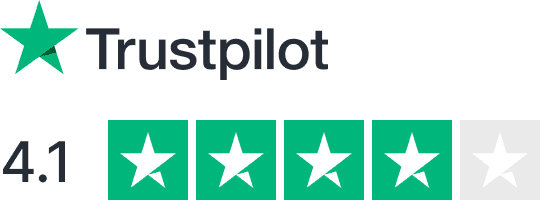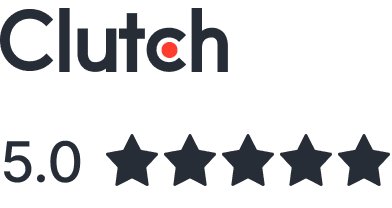Technical staff augmentation helps businesses quickly fill skill gaps, save costs, and stay flexible by integrating skilled professionals into their teams without long-term hiring. Here’s why it’s a smart choice:
- Cost Savings: Companies can save 30%-70% on developer costs by avoiding full-time overheads.
- Faster Hiring: Augmented staff are deployed quicker than traditional hires (often within days).
- Global Talent Access: Regions like LATAM offer skilled developers at significantly lower rates, with shared time zones and strong English proficiency.
- Reduced Administrative Burden: Staffing agencies handle payroll, taxes, and compliance.
Quick Comparison: Traditional Hiring vs. Staff Augmentation
| Feature | Traditional Hiring | Staff Augmentation |
|---|---|---|
| Cost | Fixed, high overhead | Flexible, project-based |
| Time to Hire | 30-70 days | Faster deployment |
| Legal/HR Tasks | Managed in-house | Handled by agency |
| Flexibility | Limited | High |
Staff augmentation allows businesses to scale efficiently, especially by leveraging affordable, high-quality LATAM talent.
The IT Staff Augmentation Guide
LATAM Technical Talent Market
The technical talent pool in Latin America (LATAM) has become a key resource for U.S. companies looking to expand their development teams. With over 2 million software developers across the region and projections of the market reaching $15.36 billion by 2029, LATAM offers a strong foundation for technical staff augmentation. These numbers highlight the region’s ability to meet the rising demand for skilled tech professionals.
LATAM Talent Benefits
Hiring technical talent from LATAM brings several advantages for U.S. businesses. The region prioritizes STEM education, generating a steady flow of qualified professionals. For instance, Mexico has a higher percentage of STEM graduates (26%) compared to the U.S..
Additionally, LATAM is home to around 2.2 million remote workers, primarily from Mexico, Brazil, and Argentina. Many of these professionals are fluent in English and align well with U.S. workplace culture. The shared time zones also make real-time collaboration seamless, as most LATAM countries operate during standard U.S. business hours.
Top Tech Cities in LATAM
LATAM’s technical expertise is concentrated in several key cities:
- Brazil: São Paulo and Rio de Janeiro lead with 760,000 software developers.
- Mexico: Mexico City and Guadalajara contribute approximately 560,000 developers.
- Argentina: Buenos Aires adds another 170,000 developers.
These cities serve as hubs for specialized talent, making them top choices for sourcing skilled professionals.
LATAM vs U.S. Developer Rates
LATAM developers deliver high-quality work at more affordable rates compared to their U.S. counterparts. Here’s a breakdown of annual salary ranges for key technical roles:
Technical Role Salary Comparison
| Role | LATAM Range | U.S. Average | Potential Savings |
|---|---|---|---|
| Full-Stack Developer | $48,000–$78,000 | $161,500 | Up to 52% |
| Back-End Developer | $48,000–$78,000 | $120,000 | Up to 35% |
| Mobile Developer | $60,000–$84,000 | $140,000 | Up to 40% |
| DevOps Engineer | $48,000–$60,000 | $125,000 | Up to 52% |
For example, a U.S.-based Fintech company cut costs by 40% by hiring LATAM data professionals. Similarly, Delve and Cyberfortress reported annual savings of $500,000 by filling roles with LATAM hires.
LATAM software engineers working with U.S. companies typically earn 60% more than their local market rates. This creates a mutually beneficial situation – engineers are motivated by higher pay, while companies save significantly.
The region’s growing startup ecosystem – with over 9,000 companies, including 60 unicorns – further demonstrates the depth of its talent pool. In 2023 alone, LATAM attracted $3.9 billion in venture capital investment, highlighting its vibrant and evolving tech landscape.
Team Integration Guide
Skills Assessment
Start technical staff augmentation with a detailed skills assessment. Use a mix of AI tools and tailored challenges to evaluate both technical abilities and interpersonal skills.
Design assessments around practical challenges that reflect your team’s specific needs. This helps predict how candidates will handle real tasks in your work environment.
Key Assessment Components
| Component | Purpose | Implementation Method |
|---|---|---|
| Technical Skills | Assess coding expertise and problem-solving | Custom coding challenges via platforms like CodeSignal or HackerRank |
| System Knowledge | Measure familiarity with required tools | Project-based tasks focused on specific technologies |
| Communication | Test collaboration and clarity | Video interviews and written documentation exercises |
| Problem-solving | Analyze analytical thinking | Time-limited challenges requiring detailed solution explanations |
Use these insights to streamline the onboarding process for remote team members.
Remote Team Onboarding
Integrating augmented staff effectively starts with a structured onboarding plan. Set up clear communication channels and ensure team members have access to necessary systems before they begin work.
“Clear and timely communication is crucial when working with a remote team. Look for a provider with robust communication protocols, such as regular status updates, daily standups, and a dedicated project manager. It’s also essential to ensure that the provider is fluent in your preferred language and time zone.”
Create a detailed onboarding checklist that includes:
- System Access Setup: Grant access to development environments, version control systems, and essential collaboration tools.
- Documentation Review: Share coding standards, architecture guidelines, and project-specific documents.
- Team Introduction: Organize video meetings with key team members and stakeholders.
- Project Context: Provide in-depth briefings on current projects, goals, and timelines.
After onboarding, monitor performance regularly to maintain team productivity.
Performance Management
Track performance using clear metrics and reliable tools.
Performance Tracking Metrics
| Metric Category | Key Indicators | Monitoring Tools |
|---|---|---|
| Productivity | Task completion rates, sprint velocity | Jira, Asana |
| Code Quality | Feedback from code reviews, test coverage | GitHub, Bitbucket |
| Collaboration | Communication frequency, meeting attendance | Slack, Microsoft Teams |
| Project Progress | Milestone completion, deadline adherence | Project management dashboards |
Schedule regular performance reviews and feedback sessions to address any issues early. Use cloud-based tools to document decisions and track progress. Assign a project manager to act as a bridge between in-house and augmented teams, ensuring smooth communication and alignment on goals.
sbb-itb-a3fbb4e
CareMinds Services Overview

CareMinds offers a platform designed to streamline technical staff augmentation, focusing on seamless team integration and efficiency.
CareMinds Core Features
CareMinds simplifies staff augmentation with fast and precise talent matching. Their network includes over 1,000 thoroughly vetted developers and 100+ independent recruiters. Only the top 1% of technical professionals make it through their rigorous screening process.
Here’s what sets CareMinds apart:
- Rapid Talent Matching: Get pre-vetted candidate profiles in just 3 days.
- Risk-Free Trial Period: A 2-week trial ensures companies can assess talent with no financial risk. Their “love it or pay nothing” policy guarantees satisfaction before committing.
- Full HR Support: CareMinds takes care of payroll, benefits, performance tracking, and compliance, so you can focus on your team’s success.
Contract Options
CareMinds offers flexible engagements starting at $31 per hour, providing a cost-effective alternative to standard U.S. rates.
Cost Savings by Role Type
CareMinds delivers substantial savings across various technical roles, as shown below:
| Role | Average Savings vs. U.S. Rates |
|---|---|
| Software Implementer | 62.65% |
| Software Engineer | 57.01% |
| QA Engineer | 56.17% |
| DevOps / SRE | 54.97% |
| Back-End Developer | 48.44% |
| Front-End Developer | 44.59% |
| Mobile Developer | 36.48% |
| Full-Stack Developer | 35.85% |
After a year, clients can hire developers full-time with a buyout fee equal to 50% of the developer’s annual salary, payable in installments.
Client Results
CareMinds’ thorough vetting and efficient matching process have helped businesses scale their technical teams successfully. Companies can access top talent in areas such as:
- Software engineering
- Quality assurance
- DevOps and SRE
- Mobile development
- Full-stack development
With competitive rates, flexible contracts, and end-to-end support, CareMinds helps businesses grow their technical teams without compromising on quality or efficiency.
Summary
Main Points Review
Here’s a quick recap of the key takeaways about technical staff augmentation. This approach helps companies tackle talent shortages and expand their teams effectively. According to Gartner, IT executives highlight talent shortages as the main hurdle to adopting 64% of new technologies.
“Latin America stands out as a prime destination for staff augmentation services, offering a unique combination of skilled tech talent, cost-effectiveness, and strategic location.”
Latin America (LATAM) brings several advantages to the table: reduced costs, a large talent pool, strong STEM education systems, and time zone compatibility. These factors make it an attractive option for businesses considering staff augmentation.
Getting Started
If you’re ready to implement staff augmentation, here’s how to kick things off:
- Assess Your Needs
Pinpoint the skill gaps in your current technical team. - Define Your Budget and Timeline
Set a clear budget and timeline. Keep in mind that staff augmentation can lead to savings of 30%–70%. - Choose the Right Partner
Look for a staff augmentation partner that provides:- Thorough vetting of candidates
- Flexible engagement options
- A proven history of successful placements
- Full HR and administrative support
- Integration and Management
“Think of staff augmentation as assembling your own Avengers team of tech experts for a limited time mission.” – Kaio Magalhães, CTO at Codelitt
Ensure smooth integration by using structured onboarding processes and maintaining clear communication.
Effective staff augmentation relies on a mix of technical know-how, cultural fit, and strong management. Tapping into LATAM’s growing tech talent pool and following these steps can help businesses enhance their technical capabilities while staying efficient and cost-conscious.
Related posts
FAQ
How can technical staff augmentation help businesses save money compared to traditional hiring?
Technical staff augmentation can significantly reduce costs compared to traditional hiring methods. By leveraging this approach, businesses avoid long-term expenses such as employee benefits, payroll taxes, and retirement contributions. Additionally, it minimizes upfront costs like recruitment, onboarding, and training.
Another major advantage is the ability to tap into global talent pools, particularly in regions like Latin America, where businesses can save 30% to 70% on development costs compared to onshore hiring. This allows companies to access highly skilled professionals at a fraction of the cost, without compromising on quality or efficiency.
What are the benefits of hiring technical talent from LATAM for U.S. companies?
Hiring technical talent from Latin America (LATAM) offers U.S. companies several compelling advantages. First, cost efficiency is a major benefit, as salaries in the region are generally lower than in the U.S., allowing businesses to allocate savings to other priorities like innovation, marketing, or employee development.
Additionally, LATAM boasts a highly skilled workforce, particularly in STEM fields, helping U.S. companies address critical skill shortages. Another key advantage is the time zone alignment, which enables seamless real-time collaboration and communication between teams, significantly enhancing productivity and project delivery.
By tapping into LATAM’s talent pool, U.S. companies can scale their teams effectively while maintaining operational efficiency and fostering cross-cultural collaboration.
How can businesses successfully integrate and manage augmented technical staff within their teams?
To integrate and manage augmented technical staff effectively, businesses should start by establishing clear goals and expectations for projects, including timelines and deliverables. Open and consistent communication between in-house and augmented staff is essential to ensure alignment and resolve any issues quickly.
Investing in thorough onboarding is key – introduce augmented staff to company policies, tools, and workflows, while also fostering connections with existing team members to build trust and collaboration. Regularly monitor performance using measurable metrics and provide constructive feedback to keep everyone on track. Additionally, being mindful of cultural differences and potential time zone challenges can help create a more harmonious and productive working relationship.
















